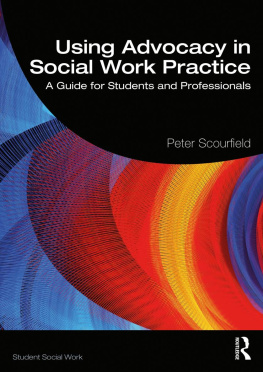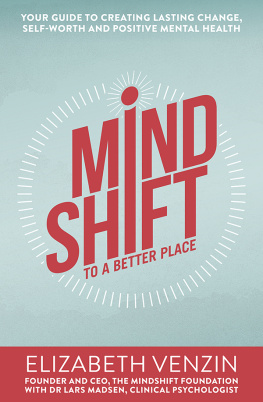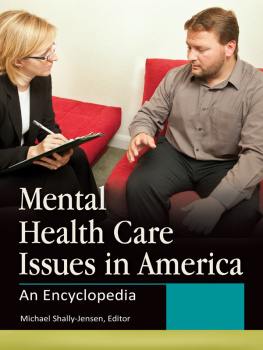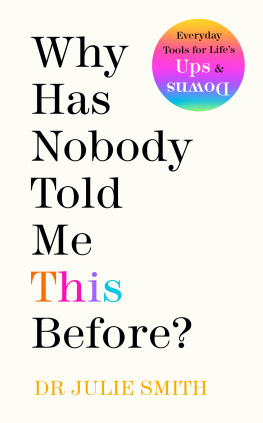INDEPENDENT MENTAL HEALTH ADVOCACY
The Right to Be Heard
of related interest
A Practical Guide to the Mental Capacity Act 2005
Principles in Practice
Matthew Graham and Jacqueline Cowley
Foreword by Alex Ruck Keene
ISBN 978 1 84905 520 8
eISBN 978 0 85700 940 1
The Equality Act 2010 in Mental Health
A Guide to Implementation and Issues for Practice
Edited by Hri Sewell
ISBN 978 1 84905 284 9
eISBN 978 0 85700 589 2
Improving Mental Health through Social Support
Building Positive and Empowering Relationships
Jonathan Leach
ISBN 978 1 84905 518 5
eISBN 978 0 85700 932 6
Culture and Madness
A Training Resource, Film and Commentary for Mental Health Professionals
Begum Maitra and Inga-Britt Krause
Foreword by Adam Phillips
ISBN 978 1 84905 352 5
eISBN 978 0 85700 701 8
Promoting Public Mental Health and Well-being
Principles into Practice
Jean S. Brown, Alyson M. Learmonth and Catherine J. Mackereth
Foreword by John R. Ashton
ISBN 978 1 84905 567 3
eISBN 978 1 78450 004 7
INDEPENDENT MENTAL HEALTH ADVOCACY
The Right to Be Heard
Context, Values and Good Practice
Karen Newbigging, Julie Ridley, Mick McKeown, June Sadd, Karen Machin, Kaaren Cruse, Stephanie De La Haye, Laura Able and Konstantina Poursanidou
Forewords by Kris Chastey and Toby Brandon
Jessica Kingsley Publishers
London and Philadelphia
.
First published in 2015
by Jessica Kingsley Publishers
73 Collier Street
London N1 9BE, UK
and
400 Market Street, Suite 400
Philadelphia, PA 19106, USA
www.jkp.com
Copyright Karen Newbigging, Julie Ridley, Mick McKeown, June Sadd, Karen Machin, Kaaren Cruse, Stephanie De La Haye, Laura Able and Konstantina Poursanidou 2015
Forewords copyright Kris Chastey and Toby Brandon 2015
All rights reserved. No part of this publication may be reproduced in any material form (including photocopying or storing it in any medium by electronic means and whether or not transiently or incidentally to some other use of this publication) without the written permission of the copyright owner except in accordance with the provisions of the Copyright, Designs and Patents Act 1988 or under the terms of a licence issued by the Copyright Licensing Agency Ltd, Saffron House, 610 Kirby Street, London EC1N 8TS. Applications for the copyright owners written permission to reproduce any part of this publication should be addressed to the publisher.
Warning: The doing of an unauthorised act in relation to a copyright work may result in both a civil claim for damages and criminal prosecution.
Library of Congress Cataloging in Publication Data
A CIP catalog record for this book is available from the Library of Congress.
British Library Cataloguing in Publication Data
A CIP catalogue record for this book is available from the British Library
ISBN 978 1 84905 515 4
eISBN 978 0 85700 930 2
This book is dedicated to all of those people who are subject to compulsion and detention under mental health law and who have a right to be heard, which should be upheld by mental health advocacy.
Contents
CHAPTER 9 Doing Independent Mental Health Advocacy Well: Values, Knowledge and Skills
FOREWORD
KRIS CHASTEY
Being sectioned in hospital is a very lonely, frightening experience. Youre desperately hoping and searching for help, information, some clarity over your situation. In my experience of this dark place, it only began to change when along came a light (advocate). I had no idea what an advocate was, let alone how much they could help me. Upon meeting the advocate it became very clear, very quickly, this wasnt just another member of staff. This person listened to me. This person LISTENED. I became a name, a human being again, not just a section. We spoke at length about my situation and how we could go about improving it. The advocate spoke to me like a person, open and honest; nothing was guarded or sugar coated. I asked a question, I got a straight answer. Good or bad, it was the information I was craving. From then on, for every ward round or meeting with the doctor, Id take the advocate. The advocate asked a question on my behalf, usually getting a positive result or feedback. Me asking that same question, Id get a well discuss it as a team and get back to you; the advocate asked and its done. Through my time in hospital the advocate became a tool to speed up the process of getting out, asking about my therapy or medication. A good advocate becomes your mouthpiece, asking the questions you need answering, getting you the results you need. My experience of hospital is a place where information doesnt flow to and from the right people. The advocate unblocks this process. By introducing common sense and a dose of reality (in a very unreal situation), you know where you stand; you know whats happening. Working together with my advocate sped up the process of everything I needed, reducing medication, increasing leave, and eventually getting discharged. On many occasions the advocate was unhappy with my situation and wanted answers; answers they got. If I asked those same questions as a patient, at best I wasnt taken seriously, at worst it was seen as a sign that I was becoming unwell. My situation improved the moment I took the chance to get the advocate involved. I took that chance as I figured it couldnt get any worse. I found an ally, a voice of reason, a person who could help me at every step with my journey through hospital. The last step of this was my Tribunal; my advocate sat right next to me, after talking me through the whole process and helping me through it. In hospital, most patients see the advocate as another person to avoid and not trust. They all struggle with the same problems I did: fear, uncertainty and the lack of information that surrounds you in hospital. I found using the advocate was the change that started helping me the most. I saw from my own experience the patients who used the advocate went through the whole hospital process much quicker and seemed much more content with the way things were going. The patients who avoided all contact with the advocate (the majority) struggled through, with all the same problems, unhappy with medication, their leave and their situation. It didnt seem to improve because as a patient on your own, youre not taken seriously or put to the back of the queue. When I took the advocate to ward rounds, the whole weekly meeting became very different. The doctor and the staff became much more efficient, as if just by having the advocate there it kept them on their toes. The dynamic of ward rounds changed; we got answers, clear ideas and a structure on how my care would go. Every question and request was answered and explained there and then. No more well discuss it as a team and get back to you we got a yes or a complete and clear reason for not agreeing. My whole situation was improved by my advocate. I have no doubt of this, but at the same time Im very aware that the advocate I found was a very GOOD advocate. I know from previous experiences and many stories of other patients this isnt always the case.
Once a week, when the advocate came to the ward, I saw them as the most important person in the building, someone who can get things done. So, from my point of view, the type of people who become advocates is incredibly important. There are many qualities needed to do the job well. I actually consider myself lucky throughout my whole journey through the hospital experience, as I found a very good, helpful advocate, who helped me in my hour of need. I hope every patient finds the advocate they deserve, and they help them in the way I was helped.











